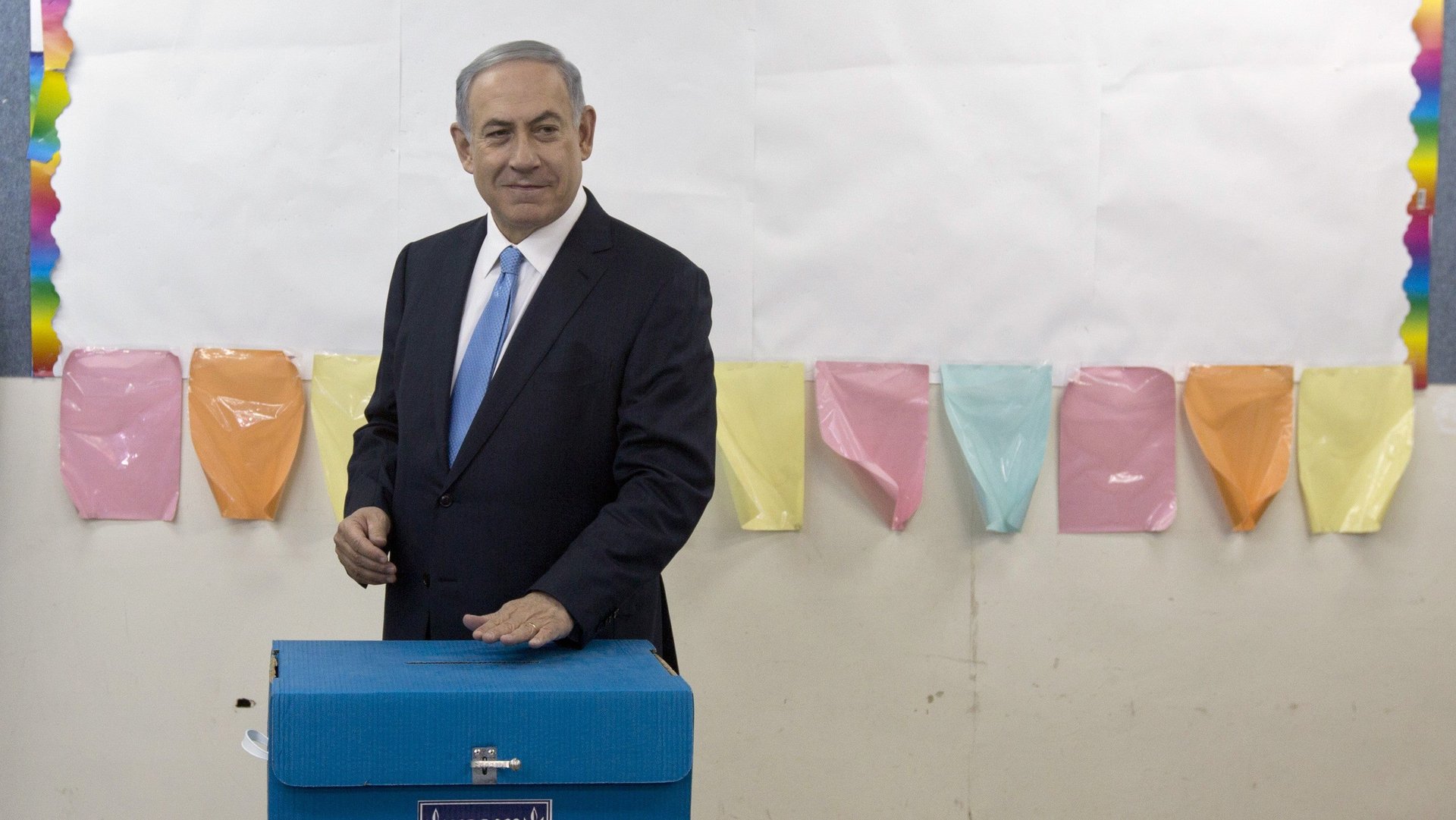Five takeaways from the Israeli exit polls
Exit polls show Likud, the right wing party of prime minister Binyamin Netanyahu, in a dead-heat with the center-left Zionist Union of Isaac Herzog, each likely to get 27 seats in the parliament.


Exit polls show Likud, the right wing party of prime minister Binyamin Netanyahu, in a dead-heat with the center-left Zionist Union of Isaac Herzog, each likely to get 27 seats in the parliament.
Here are the five main takeaways from the polls:
- Bibi wins. Likud may not have a clear win yet, but in the Israeli political system that doesn’t mean much. The country is always run by an coalition of political parties, and Netanyahu, now on course to overtake David Ben-Gurion as the country’s longest-serving prime minister, is a past master at coalition-cobbling. The momentum is certainly with him: recent polls had Likud winning as few as 20 seats.
- The two-state solution is dead. A day before the election, Netanyahu said if he won a fourth term as prime minister, there would be no Palestinian state. Critics have long said he never really supported the two-state solution, but this public declaration of intent is nonetheless a blow. It’s hard to see him paint himself out of a corner from this position—if he even wanted to.
- The Arab coalition did well, but so what? Thanks to the political mobilization of Arab Israelis, the exit polls suggest the so-called Joint List will get as many as 13 seats. But with the likely scenario of a Likud-led government, the List’s influence is likely to be minimal. Ayman Odeh, leader of the List, said before the election that his goal was to prevent Netanyahu from forming a new governing coalition. That looks unlikely.
- Bibi stands alone. Netanyahu has ruled out a national unity government, which means that he will have to form a coalition with smaller right-wing parties. But his political isolation will extend beyond Israel’s borders. Netanyahu has burned bridges with the Obama administration over Iran, and has antagonized European allies over Palestine.
- Washington has no options. What little hope the Obama administration held out for a peace deal between Israel and Palestine is now extinguished. The US may shrug off Netanyahu’s hectoring over Iran, but it has to do business with the man who runs its closest ally in the Middle East.